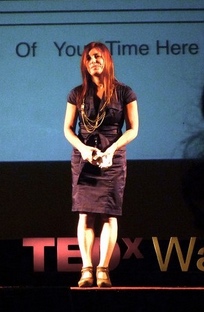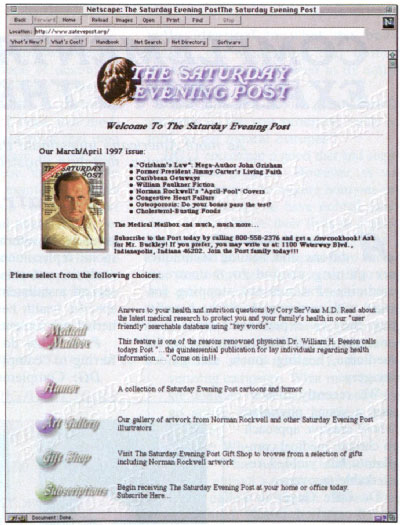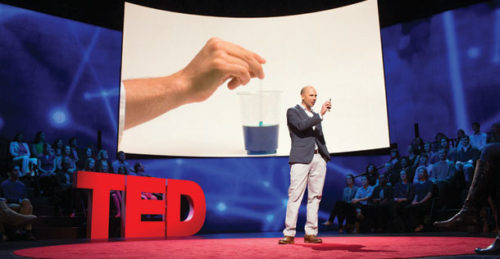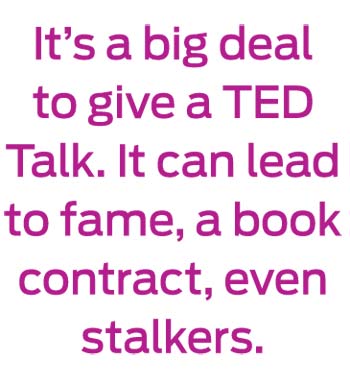News of the Week: March Madness, Mad Men Ads, and Meatballs of the Swedish Variety
Is Your Bracket Busted Yet?
There are many things I don’t understand: how the pyramids were created, the size of the universe and how we fit into the grand scheme of life, the popularity of Steve Harvey. I’d add to that list the mania that surrounds March Madness and college basketball in general.
It’s not that I don’t understand why people like basketball (though I’m a tennis and baseball guy myself), I just don’t understand the annual craziness of the NCAA men’s basketball tournament. There are people who dedicate weeks if not months to filling out their bracket, and many of these people are people who have no interest in basketball at all the other 50 weeks of the year. Who really cares about these teams, unless you go to the school, you’re an alumnus of the school, or you have a kid who goes to the school? At least in pro basketball you probably live in the city of a particular team or like certain players.
But hey, if you enjoy it and plan on watching it I don’t want to be a buzzkill. Here’s a handy bracket that you can print out from CBS, which will be airing the tournament for the next couple of weeks. I just can’t wait until it’s over and we can get back to regularly scheduled programming.
Pass the Heinz
AMC’s Mad Men is probably my favorite TV drama of all-time. Besides the sheer brilliance of the acting, writing, and directing (I know that’s not an in-depth analysis but it happens to be accurate), I always thought that many of the companies that Don Draper’s advertising agency worked for should actually take the campaigns used on the show and use them for their products in real life. Now, one has.
Heinz is going to use the idea Don came up with, to show the foods that Heinz ketchup would be used on—burgers, fries, etc.— without actually showing the Heinz bottle. In the show Heinz didn’t go with Don’s idea, but now they like it! We’ll see billboards in New York City and print ads too.
Here’s Don’s pitch:
RIP Robert James Waller, Joni Sledge, Christopher Gray, Jay Lynch, and Jack H. Harris
Writer Robert James Waller is best known for his novel, The Bridges of Madison County, which was made into a film starring Clint Eastwood and Meryl Streep. He also wrote several other novels, including Border Music, Slow Waltz in Cedar Bend, Puerto Vallarta Squeeze, and the sequel to The Bridges of Madison County, A Thousand Country Roads.
Waller passed away last week from cancer at the age of 77.
Joni Sledge was part of the group Sister Sledge, famous for songs like “We Are Family,” “My Guy,” and “He’s The Greatest Dancer.” She passed away Saturday at the age of 60.
Christopher Gray was an expert on architecture and a historian who wrote the popular “Streetscapes” column for The New York Times. When the column ended in 2014 after 27 years, Gray continued to write it on Facebook. He passed away last Friday at the age of 66.
Jay Lynch was an important figure in the underground comics scene of the 1960s and ’70’s. Besides creating the comic strip Nard & Pat and starting magazines like Bijou Funnies, he also drew for Bazooka Joe comics, Garbage Pail Kids, and Wacky Packages (something I collected when I was a kid, probably one of the first “alternative” or semi-subversive things a kid at that time could get into). Lynch passed away earlier this month at the age of 72.
Beware of the Blob, it creeps, it crawls! Fans of classic monster movies will remember that line from the opening of The Blob, one of the many movies produced by Jack H. Harris. He also produced Dark Star (the first feature film directed by John Carpenter), The Eyes of Laura Mars, 4D Man, the 1988 remake of The Blob, and other films. Harris passed away Tuesday at the age of 98.
By the way, another remake of The Blob is currently in development.

“You May Want to Marry My Husband” Essayist Dies
Just two weeks ago, The New York Times published an essay that went viral titled “You May Want To Marry My Husband.” It was written by Amy Krouse Rosenthal, who was diagnosed with ovarian cancer and only had a short time to live. Rosenthal passed away this week. She was only 51 years old.
Rosenthal wrote more than 30 books in her short time, including children’s books like Duck! Rabbit!, Uni the Unicorn, I Wish You More, and Bedtime For Mommy. She was also a filmmaker and essayist and wrote a really terrific memoir titled Encyclopedia of an Ordinary Life. Her most recent book was 2016’s Textbook Amy Krouse Rosenthal, where she actually encouraged readers to send her text messages.
The Biggest Threats to the Web (According to the Guy Who Invented It)

When the inventor of something has an opinion about that something, you should probably listen to him.
Sir Tim Berners-Lee created the very thing you’re looking at right now, the World Wide Web. It turned 28 last Sunday, and Berners-Lee wrote a letter for The World Wide Web Foundation outlining what he sees as the three biggest threats we face in the online world.
You can probably guess what they are. One is that we’ve lost control of our personal data, one is that false information can spread quickly and easily on the web, and the other is the dangers of political advertising. These are all major problems that, well, let’s face it, will probably never be solved since people want easy access to information, convenience, speed, and they want to live on social media.
My pick for the biggest threat to the web? Auto-play videos.
This Week in History
Coca-Cola First Sold in Bottles (March 12, 1894)
The first glass bottles of the popular soft drink (invented eight years earlier by Dr. John Pemberton) were sold at a soda fountain in Vicksburg, Mississippi.
President Andrew Jackson Born (March 15, 1767)
It’s the 250th birthday of our seventh president, who was called a brawler, gambler, drunk, thief, and adulterer by supporters of rival John Quincy Adams.
This Week in Saturday Evening Post History
“St. Paddy Cake for Policeman” Cover (March 16, 1940)

March 16, 1940
Magazines don’t do covers like this anymore, do they? It’s such a bold, specific image. I love the attention to detail in the bowl. The artist, Albert W. Hampson, could have just drawn an empty bowl but he left some cake batter in there and you can see the scrapes on the inside.
Use Your Noodle
Some weeks I wonder if I should even mention what food month it is. If it’s at the start of the month, sure, they’re well worth highlighting. But if it’s the last week of the month it’s probably too late. Here we are on March 17. That’s still early enough to mention what food month it is, isn’t it?
March is National Noodle Month! There are many things to make beyond chicken noodle soup, like this Broccoli Cashew Casserole, these Soba Noodles with Kimchi, or maybe Betty’s Swedish Meatballs, which ideally should be served over egg noodles.
Betty, by the way, would be Betty Draper, Don’s wife. That recipe is from the fantastic Unofficial Mad Men Cookbook. I don’t know if Heinz ketchup would be good on Swedish meatballs and noodles but give it a try.
Next Week’s Holidays and Events
National Cherry Blossom Festival (March 18)
Because of this week’s east coast snowstorm, the official opening of the annual Washington, D.C. festival has been pushed back to March 18. It runs until April 16.
First Day of Spring (March 20)
It’s probably not going to feel like it in many parts of the country, but the Spring Equinox begins in the northern hemisphere at 6:28 a.m.
Innocent Days on the Internet
“The Internet can and will change your life.”
Readers who saw those words in a 1997 Post article might have easily dismissed them as journalistic hype. The Internet was still quite young and unexplored in those days. It gave little indication it would grow into the force that would reshape America’s economy, politics, society, education, and arts.
It had been developing slowly and quietly. While the first tests of the Internet took place in November 1969, as late as 1993, there were only 50 websites in operation. The first secure online purchase wasn’t made until August 1994 (when a Web developer bought a copy of Sting’s CD Ten Summoner’s Tales.)

Web traffic was climbing steadily, though, and the number of Internet users doubled every year. By 1997, over 70 million people around the world were online. But this was still less than 2 percent of the planet’s population. Large sections of Americans were only vaguely aware of this thing called the World Wide Web. The Post article, “Trekking the Internet,” probably introduced many readers to such terms as “HTML” and “browser” and “URL” (“pronounced ‘You Are Ell,’” the authors helpfully added).
We’re now so accustomed to the Internet that it’s amusing to read the authors’ comments on basic operations. “You can ‘save your place’ on the Web and create a list of your own favorite sites. The list of personal favorites is usually referred to in the software as the … Bookmarks section.”
Though some of the players they describe have passed from prominence — America Online’s WebCrawler and CompuServe’s NetLauncher — the Internet is still much as they described it then: “fascinating, stimulating, and thought-provoking … also silly, irreverent, and mundane.”
The biggest difference between then and now, though, is the Internet’s attitude toward commercialization. The article reported that Internet users and service providers would tolerate no advertising on the Web. When two attorneys sent a spammed advertisement to thousands of newsgroups in 1994, the Internet “responded swiftly and with considerable ferocity. All messages originating from [the lawyers] were intercepted and destroyed. Their fax machine was swamped by a flood of dummy calls, effectively disabling their machine. Their service provider was also deluged and cut off [the lawyers’] service. … They went to another service provider who offered them the same discourtesy.”
Perhaps it was naive to think the Web could remain commercial-free. Back in the 1920s, many Americans had expected radio would remain free of advertising, and America’s airwaves unsullied by singing jingles for scouring powder and deodorant. But radio went commercial, as did the Internet.
Unlike radio, however, the Internet allows users to intercept and block the advertising sent at them. Ad blockers are becoming so efficient that advertisers are starting to worry.
It’s likely that ad blocking will change the amount and type of advertising we see on the Web. But then, change is perhaps the only constant in the digital world.
The TED Talk Juggernaut

Ryan Lash/TED
Talk is cheap. Except, I should say, if you hope to attend the annual TED Conference — famous for its masterfully crafted Talks — in which case you’ll lay out 8,500 bucks for the privilege. And only if your application is accepted, which it probably won’t be. Because you’re not actually a big-shot global paradigm-shifter, are you? However, should you be among the chosen few, you’ll witness five days of live, mostly brilliant presentations about … well, that’s the whole point. You never know.
All of these performances — er, Talks — are artfully videotaped, after which they enter the eternal slipstream of the World Wide Web. There are some 2,000 of these videos now. Over the last 30 years they have grown into a significant cultural phenomenon.
In principle, the purpose of the Talks is to showcase innovative ideas. Before its mission broadened, TED stood for Technology, Entertainment, Design. All well and good. But many of the Talks nowadays are clearly pitched to astonish audiences as well. Online, you are free to watch any of them, at no charge. Millions do. It takes but a few minutes, for instance, to screen Pamela Meyer’s “How to Spot a Liar,” which has been among the most widely admired Talks ever. Or you could check out “Looks Aren’t Everything. Believe Me, I’m a Model,” which has been another favorite. Among the least popular Talks online is one that explains how to dry your hands with a single paper towel. Some people paid big money to see that in person.
A major Talk, by TED standards, might go 18 minutes. A short one, just three minutes. Three? I’ve gagged on a bad piece of tuna longer than that. (Note to self: Consider developing “A Sea of Trouble: Don’t Let Fish Choke You Up” as a TED Talk.)
Understandably, it’s a big deal if you’re asked to address a TED crowd. A successful Talk can lead to fame, a book contract, even stalkers. Speakers are selected by TED’s curatorial team. “We look for someone who has knowledge to share and can deliver it in a way that resonates,” says Tom Rielly, TED’s community director. Yet no one, no matter how celebrated, gets up on that perfectly lit stage without prior coaching by TED’s staffers. Few risks are taken, though Rielly admits to a few dud Talks (“We’re not perfect”). Oh, and another thing: There’s no compensation. You walk the Talk for the honor of it. Actor Richard Dreyfuss’ handlers were at first dismissive. Thanks for the invite, but no cash?! In the end, they relented. This account was relayed to me by a Californian who’d once been an executive with TEDx. 
TEDx gatherings are licensed offshoots of the high-voltage annual conference. If less expensive to attend and less star-studded, they can be equally life-altering. Take Jack Abbott, a San Diego ad-agency executive who was so knocked over by TEDx Talks (“a vacation for my mind, heart, and soul”) that he ditched his career to begin anew. Today, he’s CEO of Intelligent Light Source, which markets high-tech illumination for indoor plants.
“It was an evolution from thinking to doing,” he told me. “I saw that I could effect change by getting off my ass.”
In Australia, an Internet retailer of retro merchandise has made a practice of watching one Talk every morning of the year — “before I get out of bed” — and analyzing it in her well-read blog. “I love the age we live in, but let’s face it, we’re being spoon-fed how to think,” Vanessa Rose, the blogger, said in an email to me. “TED Talks present new ideas that can be really beneficial to the world.”
Dispensing novel ideas as if they were M&Ms has predictably drawn plenty of critics, mostly among the chattering classes. There’s been lots of good-natured ribbing, too. The Onion, which specializes in snarky satire, has produced a killer send-up of a TED Talk, titled “Ducks Go Quack, Chickens Say Cluck.”
Meanwhile, I notice that TED.com’s Talk of the Day, as I write this, is “Got a Wicked Problem? First, Tell Me How You Make Toast.” Seriously. Okay, I’m game.